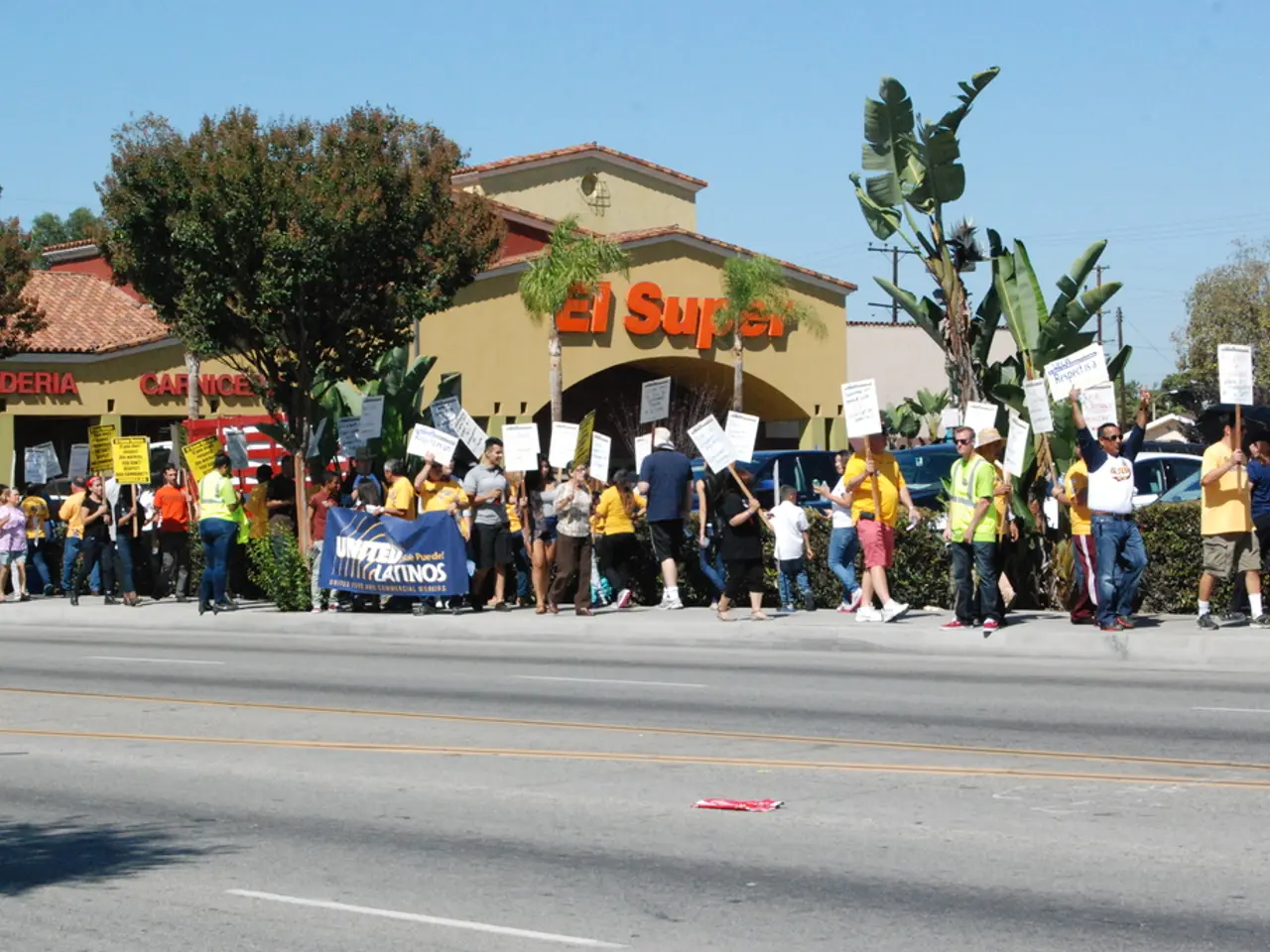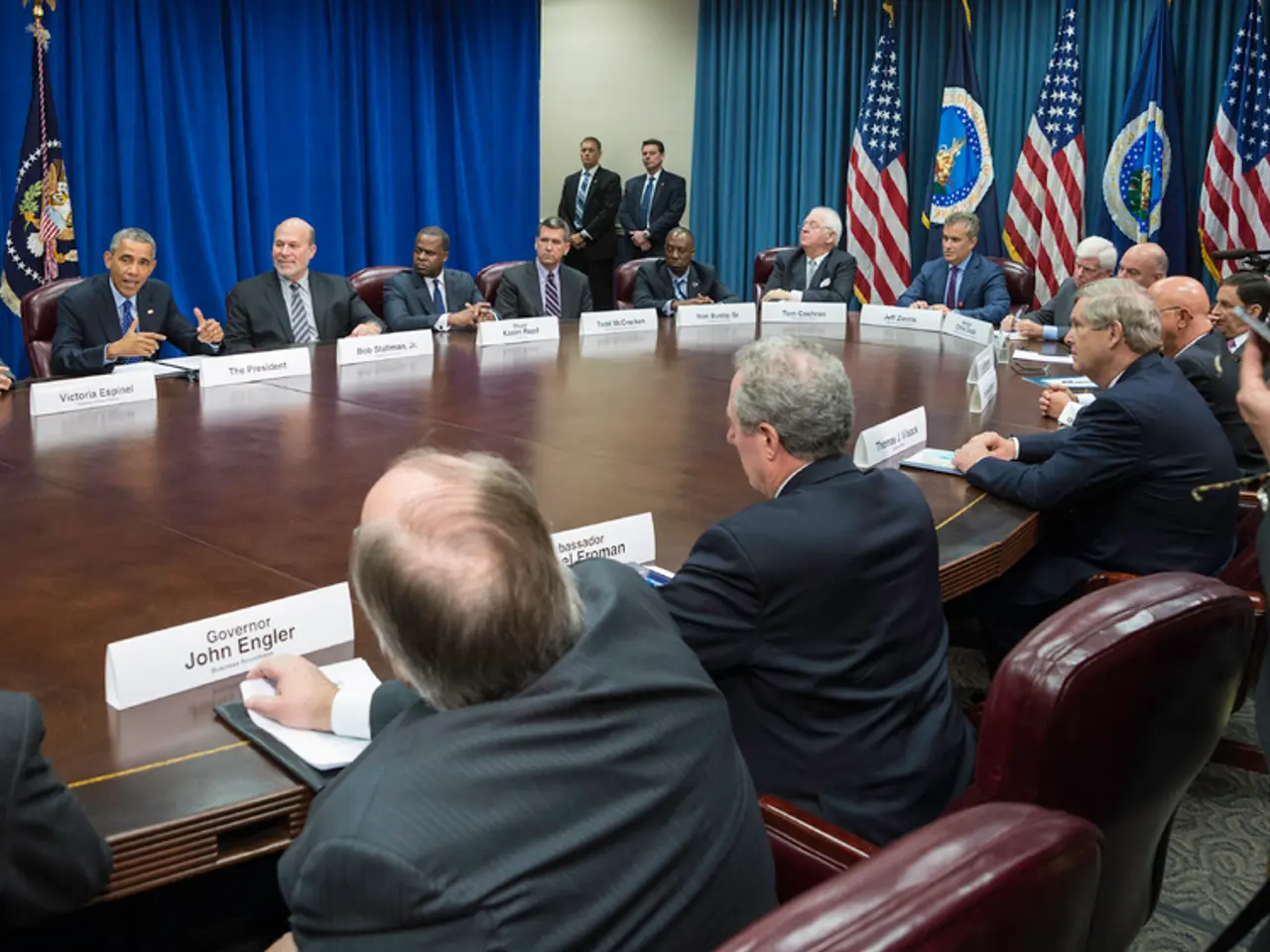Conflict in Bihar Elections: Namaz Controversy vs Social ideology Debate
In the lead-up to the Bihar Assembly elections, a new term has emerged in the political discourse of the state: "Namazwadi." Coined by the Bharatiya Janata Party (BJP), the term is used to criticize their rivals, primarily the Rashtriya Janata Dal (RJD) and the Samajwadi Party (SP), amidst controversies over the Waqf (Amendment) Act.
## Context of "Namazwadi"
The BJP employs "Namazwadi" (someone devoted to "Namaz," the Islamic prayer) as an epithet to allege that these parties are prioritizing Muslim religious interests and identity over broader socialist principles, which traditionally focus on upliftment of the poor and marginalized across castes and communities. The BJP's specific target is RJD leader Tejashwi Yadav, who, in a Patna rally, promised that his alliance would "throw the Waqf Act into the dustbin" if elected. The BJP claims such statements disrespect parliamentary and constitutional processes, and are motivated by vote-bank politics aimed at appeasing Muslim voters.
## Relation to the Waqf (Amendment) Act 2025
The Waqf Act governs the management of waqf (Islamic charitable endowments) properties. The BJP supports recent amendments and accuses the RJD of wanting to discard the amended Act for political gain. The RJD and its allies argue that the amendments have negative implications for minority rights and are used by the BJP to centralize control over waqf properties. The RJD, by pledging to discard the amended Act, positions itself as a defender of minority rights. The BJP, on the other hand, claims that the amended Act is constitutionally valid and supported by multiple high courts. It alleges that the RJD’s stance is not about protecting the marginalized but is instead religiously motivated, hence the "Namazwadi" label.
## Upcoming Bihar Assembly Election
The debate over the Waqf Act and the use of "Namazwadi" are central to the political narrative as Bihar prepares for its next assembly election, with 243 seats at stake. The BJP is contesting in alliance with Nitish Kumar’s Janata Dal (United), while the RJD leads the opposition INDIA bloc. The rhetoric is seen as part of a broader effort to polarize voters along religious lines and consolidate support among Hindu and other non-Muslim communities. The "Namazwadi" term could influence perceptions among voters, shaping the discourse on minority rights, secularism, and the role of religion in governance as the election approaches.
## Implications
By labeling opposition parties as "Namazwadi," the BJP attempts to frame them as promoting policies that favor Islamic law (Sharia) over secular, civil law, and to accuse them of undermining affirmative action for SC/ST/OBC groups by allegedly misusing minority provisions. The use of this term is a deliberate tactic by the BJP to frame the opposition as pandering to Muslim interests at the expense of broader social justice, and to link the Waqf Act controversy directly to the assembly election campaign.
Sources: [1] The Wire (2022). "BJP's "Namazwadi" Attack on Tejashwi Yadav: An Unveiling of the BJP's Playbook in Bihar." The Wire. Retrieved from https://thewire.in/politics/bjp-namazwadi-attack-tejashwi-yadav-bihar-assembly-elections-2022 [2] India Today (2022). "BJP's "Namazwadi" Jibe at Tejashwi Yadav: What It Means and Why Is It Being Used?" India Today. Retrieved from https://www.indiatoday.in/india/story/bjp-namazwadi-jibe-at-tejashwi-yadav-what-it-means-and-why-is-it-being-used-1899642-2022-05-04 [3] NDTV (2022). "BJP's "Namazwadi" Attack on Tejashwi Yadav: What Does It Mean?" NDTV. Retrieved from https://www.ndtv.com/india-news/bjp-s-namazwadi-attack-on-tejashwi-yadav-what-does-it-mean-2858995 [4] Scroll.in (2022). "BJP's "Namazwadi" Attack on Tejashwi Yadav: A Look at the Term's History and Significance." Scroll.in. Retrieved from https://scroll.in/article/1027176/bjp-s-namazwadi-attack-on-tejashwi-yadav-a-look-at-the-term-s-history-and-significance [5] Outlook India (2022). "BJP's "Namazwadi" Attack on Tejashwi Yadav: What It Means and Why It Matters." Outlook India. Retrieved from https://www.outlookindia.com/website/story/bjp-s-namazwadi-attack-on-tejashwi-yadav-what-it-means-and-why-it-matters/409600
- The term "Namazwadi," coined by the BJP, is being used as a tactic to criticize political rivals, particularly the RJD and SP, over perceived prioritization of Muslim religious interests and identity in the context of the Waqf (Amendment) Act.
- The debate surrounding the Waqf Act and the use of "Namazwadi" is significant in the lead-up to the Bihar Assembly elections, where parties are contesting for 243 seats, with the BJP joining forces with Nitish Kumar's Janata Dal (United), while the RJD leads the opposition INDIA bloc.
- The "Namazwadi" label is part of a broader effort by the BJP to portray opposition parties as promoting policies that favor Islamic law over secular, civil law, and as undermining affirmative action for SC/ST/OBC groups by allegedly misusing minority provisions.
- General news, crime and justice, health, education, policy and legislation, culture, and politics all intersect in this debate, as the use of "Namazwadi" may shape perceptions among voters on minority rights, secularism, and the role of religion in governance during the election.






